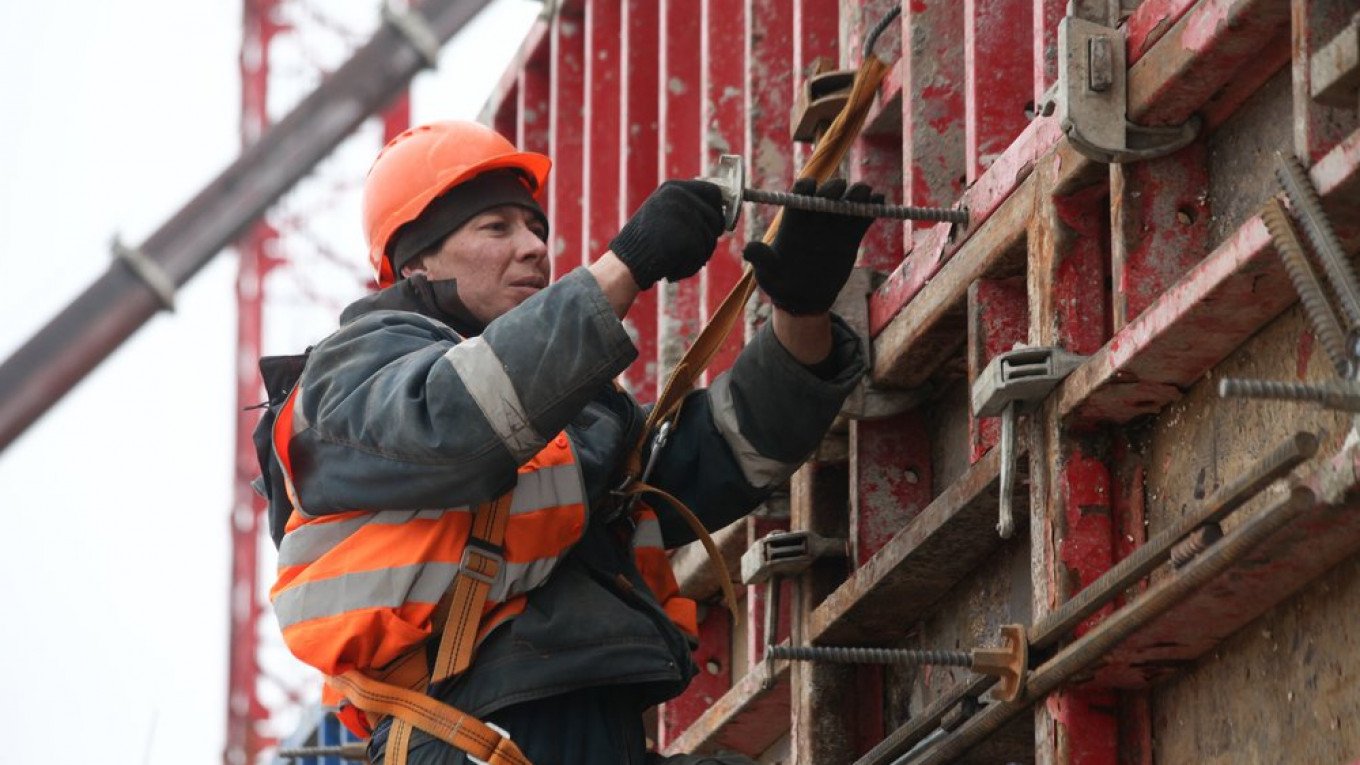Vladimir Putin, his popularity slipping, wants his government to rev up the economy. But a squeeze on spending by the Finance Ministry so far this year has dragged growth to a near standstill.
Less than 60% of the annual budget had been spent by the end of August, the lowest proportion since before 2012, according to ministry data. Less than a third of the money allocated for this year to Putin’s $400 billion multi-year National Projects infrastructure plan had been used by the end of June, Audit Chamber data show.
The funding drought — made worse by revenue that is running above plan — has helped push growth to the slowest in three years.
Russia usually underspends in the first half and catches up with a big burst toward the end of the year. But the imbalance this year is worse than usual, in part because officials are being extra cautious about releasing money for the National Projects infrastructure program, given extra Kremlin scrutiny.
“There’s an enormous amount of detail on how to measure each project and what needs to be achieved. That makes implementation difficult,” said Laura Solanko, a Russia expert at the Bank of Finland Institute for Economies in Transition. “The aim is to make sure the money is well spent, but the detail makes it all a very cumbersome process.”
The spending backlog reached 700 billion rubles ($10.8 billion) by the end of August, costing about 1 percentage point of growth in the first half, according to the central bank. In a further drag, some of the unspent funds may need to be pushed into next year to avoid “cramming it into the last four months of 2019,” said Alexey Zabotkin, head of the monetary policy department.
Russia ran a budget surplus of 3.7% in the first eight months of the year, the widest since before the global financial crisis in 2008.
Growth this year will be only about 1%, according to the Central Bank, below the government’s 1.3% target and the weakest since 2016. Putin’s National Projects aren’t likely to have much impact until 2020 at the earliest, according to economists.
“The spending this year is unlikely to have a material impact on growth,” said Dmitry Dolgin, chief economist at ING Bank in Moscow. “It will be painful for the economy if we see some structural issues with fulfilling the projects later on.”
A Message from The Moscow Times:
Dear readers,
We are facing unprecedented challenges. Russia's Prosecutor General's Office has designated The Moscow Times as an "undesirable" organization, criminalizing our work and putting our staff at risk of prosecution. This follows our earlier unjust labeling as a "foreign agent."
These actions are direct attempts to silence independent journalism in Russia. The authorities claim our work "discredits the decisions of the Russian leadership." We see things differently: we strive to provide accurate, unbiased reporting on Russia.
We, the journalists of The Moscow Times, refuse to be silenced. But to continue our work, we need your help.
Your support, no matter how small, makes a world of difference. If you can, please support us monthly starting from just $2. It's quick to set up, and every contribution makes a significant impact.
By supporting The Moscow Times, you're defending open, independent journalism in the face of repression. Thank you for standing with us.
Remind me later.






